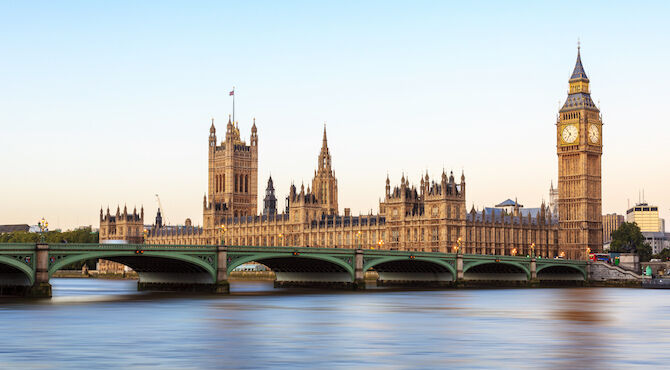Tories' Brexit and immigration plans worry business
Business leaders in the UK have reacted cautiously to the ruling Conservative Party's general election manifesto, published on Sunday.

 25 November 2019
25 November 2019Confederation of British Industry
Businesses are also anxious to know what form the UK's new immigration system, based vaguely on an "Australian-style points system", will take when Brexit ends freedom of movement from the EU27 nations.Josh Hardie, deputy director-general of the Confederation of British Industry (CBI), says that while businesses would be heartened by a pro-enterprise vision, they would also be looking for even more ambition in areas such as access to skills, infrastructure and reaching net-zero carbon emissions.“But the inconvenient truth remains: sustainable economic growth will be risked if there is a needless rush for a bare-bones Brexit deal that would slow down our domestic progress for a generation," he says.“The National Skills Fund could make an important contribution to the significant upskilling efforts needed in the coming years. It needs to be delivered in partnership with business and come hand-in-hand with a detailed new immigration system that gives access to the full range of skills and labour the economy needs.“Significant investment in local infrastructure will drive growth and reduce regional inequalities. To get the UK moving, the next government must match it with unequivocal backing for key projects like HS2 and Heathrow."Related news
- UK business unease over Labour's election plan
- Business unease over Tory immigration plans
- Manufacturers join calls for visa reforms
- UK jobs market stalls ahead of election
The manifesto includes a range of practical actions to put the UK on the path to net-zero, from electric vehicle charging networks to energy efficiency in homes. But Hardie adds that “it could go further by backing onshore wind and a new financing model for nuclear power.“On Brexit, firms need the certainty of a closely aligned, frictionless relationship with the EU. The stability provided by transition is a vital first step, but it cannot be a Trojan horse for a bad deal."
British Chambers of Commerce
Adam Marshall, director-general of the British Chambers of Commerce, says that while the manifesto "strikes some of the right notes", businesses would like to see more substantial measures to boost growth, enterprise and investment.On Brexit, Mr Marshall says there is a big difference between ‘getting Brexit done’ and doing it right. "The details matter to both businesses and communities – and the Conservative Party needs to be realistic with the electorate about the scale and complexity of the task ahead," he says."Categorically rejecting the possibility of a longer transition period is a real concern, because it means businesses could face yet another damaging cliff-edge at the end of 2020."While Mr Marshall welcomes such manifesto commitments as improved skills training, road maintenance and childcare, he says that businesses need much more clarity on "big-ticket items" such as infrastructure projects and how the UK’s future immigration system would work in practice.He also warns, “Big pledges to increase spending and freeze personal tax rates cannot be paid for on the backs of hard-pressed businesses. Higher business taxes or costs would undermine confidence and investment at precisely the time that it is needed most."Institute of Directors
Edwin Morgan, director of policy at the Institute of Directors, says that there is much to like in the manifesto as far as issues such as skills, infrastructure and research were concerned, where there is a "desperate" need to help businesses invest.But he adds, “When it comes to Brexit, business will only feel it is ‘done’ when they know the terms of the new relationship with the EU, not before. There is still a long way to go, and the next government must put the needs of the economy first when negotiating on matters relating to trade and market access.“Business leaders will still want to see value for money from the Conservative spending pledges, and there are some concerns this is turning into a big-spending election, but Tory plans are still well lower than the massive expansion being advocated by Labour.”Read more news and views from David Sapsted.
Subscribe to Relocate Extra, our monthly newsletter, to get all the latest international assignments and global mobility news.Relocate’s new Global Mobility Toolkit provides free information, practical advice and support for HR, global mobility managers and global teams operating overseas. Access hundreds of global services and suppliers in our Online Directory
Access hundreds of global services and suppliers in our Online Directory
©2026 Re:locate magazine, published by Profile Locations, Spray Hill, Hastings Road, Lamberhurst, Kent TN3 8JB. All rights reserved. This publication (or any part thereof) may not be reproduced in any form without the prior written permission of Profile Locations. Profile Locations accepts no liability for the accuracy of the contents or any opinions expressed herein.






























